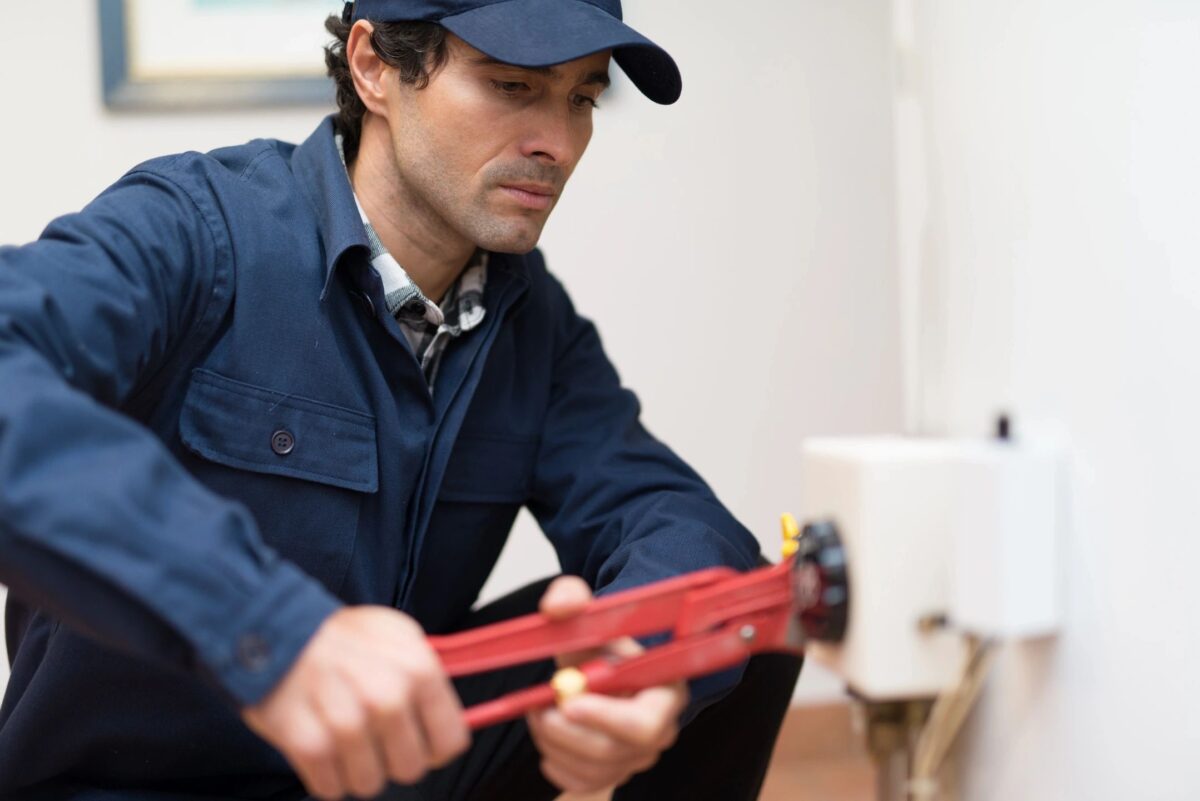When it comes to choosing a water heater for your home, one of the most important decisions you’ll make is whether to go with a gas or electric model. Both types of water heaters have their advantages and drawbacks, depending on your needs, budget, and energy preferences.
Understanding the difference between gas and electric water heaters will help you make a more informed decision, ensuring that you choose the best system for your home. In this blog post, we’ll explore the key differences between gas and electric water heaters, including their efficiency, installation requirements, operating costs, and maintenance.
How Gas and Electric Water Heaters Work
Before diving into the differences, it’s important to understand how each type of water heater operates.
Gas Water Heaters: A gas water heater uses natural gas or propane to heat water. The gas burner is located at the bottom of the tank and heats the water directly, which is then distributed to your faucets and appliances. Gas water heaters are typically faster at heating water due to the higher temperature achieved by the gas burner.
Electric Water Heaters: An electric water heater uses electricity to power heating elements, usually located near the bottom of the tank. These elements heat the water in the tank, which is then available for use. While electric water heaters tend to be slower than gas models, they are still an efficient option for most households.
Energy Efficiency
Energy efficiency is a crucial factor when deciding between a gas or electric water heater. Both types are designed to maximize energy use, but they do so in different ways.
Gas Water Heaters: Gas water heaters are generally more energy-efficient than electric models, especially for larger households or homes that use a lot of hot water. This is because natural gas tends to be a more efficient heating source compared to electricity, which is why gas heaters can often heat water more quickly and consistently.
However, gas water heaters tend to have higher standby heat loss, which means they may lose heat while sitting idle. Proper insulation and regular maintenance can help reduce this heat loss, making your gas heater more efficient in the long run.
Electric Water Heaters: Electric water heaters have a higher energy efficiency rating (sometimes over 90%) compared to gas models. However, they may not be as cost-effective in terms of operation, as electricity is generally more expensive than natural gas. The advantage of electric models is that they are highly efficient when actively heating water and have lower standby heat loss compared to gas units.
Installation Costs and Requirements
The installation of a gas or electric water heater requires different considerations, especially in terms of cost, venting, and space requirements.
Gas Water Heaters: Installing a gas water heater typically costs more upfront because it requires a natural gas line (if you don’t already have one), a venting system to expel exhaust gases, and a larger installation area. If your home isn’t already set up for gas appliances, you’ll need to factor in the cost of running gas lines, which can significantly increase the overall installation cost.
Electric Water Heaters: Electric water heaters are generally less expensive to install because they don’t require venting or gas lines. They can be installed in smaller spaces and are easier to hook up to an existing electrical system. If you already have an electrical circuit in place, installation can be straightforward, and labor costs tend to be lower than for gas models.
Operating Costs
The cost of running your water heater is an ongoing consideration and can impact your choice between gas and electric. The price of natural gas and electricity varies depending on your location, but in general:
Gas Water Heaters: Gas tends to be less expensive than electricity in most areas, which means that operating a gas water heater usually costs less. If you live in a region with low natural gas prices, a gas water heater may be the more cost-effective option for heating water. However, gas prices can fluctuate, which may affect your long-term costs.
Electric Water Heaters: While electricity is typically more expensive than natural gas, electric water heaters are still a good choice for those in areas where gas prices are high. Electric models are generally less expensive to maintain, and if you use the water heater less frequently, the operating costs may be more manageable.
Maintenance Requirements
Both gas and electric water heaters require regular maintenance to keep them running efficiently, but there are differences in how each type should be maintained.
Gas Water Heaters: Gas water heaters require more maintenance due to the potential buildup of sediment and the need to check the burner and venting system. Over time, the gas burner can accumulate dirt and debris, which can reduce efficiency. Additionally, it’s important to ensure that the venting system is functioning properly to prevent dangerous gas leaks. Periodic professional inspections and cleaning can help maintain the performance of a gas water heater.
Electric Water Heaters: Electric water heaters generally require less maintenance because there is no burner or venting system to worry about. However, they can accumulate sediment at the bottom of the tank, which can reduce their efficiency over time. Flushing the tank periodically and inspecting the heating elements will help keep the electric water heater running efficiently. Additionally, electric models don’t carry the same risk of carbon monoxide leaks, which makes them a safer choice for some homeowners.
Longevity and Durability
Both gas and electric water heaters can last a long time with proper care, but gas models tend to have a shorter lifespan due to the more complex heating elements.
Gas Water Heaters: On average, a gas water heater lasts between 8 to 12 years, depending on factors like maintenance and water quality. The constant heating and cooling of the water can wear out the components more quickly, leading to a shorter lifespan.
Electric Water Heaters: Electric models typically have a longer lifespan of 10 to 15 years, as they are generally less prone to the wear and tear caused by gas burners. With proper care, electric water heaters tend to outlast gas heaters by several years.
Which One Should You Choose?
Ultimately, the decision between a gas or electric water heater depends on your specific needs and circumstances:
Choose a gas water heater if:
- You live in an area with low natural gas prices.
- You need a large capacity water heater for a big household.
- You prefer a faster recovery time for hot water.
- You’re willing to invest in the higher installation cost for long-term savings.
Choose an electric water heater if:
- You have easy access to electricity and don’t have a gas line.
- You live in an area with high electricity prices and prefer a simpler installation.
- You have a smaller household and don’t need a high-capacity unit.
- You prefer a lower upfront cost and lower maintenance needs.
Both gas and electric water heaters have their own set of advantages, and the best choice for you depends on factors such as installation costs, energy prices in your area, and the size of your household. Gas heaters tend to be more energy-efficient and cost-effective over time, but they come with higher installation costs and more maintenance. Electric heaters, on the other hand, are easier and cheaper to install, with less maintenance, but their operating costs can be higher depending on electricity rates.
No matter which type you choose, it’s important to regularly maintain your water heater to ensure it operates efficiently and lasts as long as possible. Consulting with a professional can also help you make the best decision for your home and budget.
Contact the pros at On Call Water Heaters today! We’ll point you in the right direction while handling all of the heavy lifting.
























